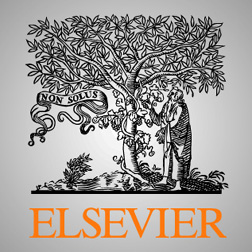دانلود ترجمه مقاله توسعه نظریه گراندد تئوری یا تئوری داده بنیاد سازنده گرا – مجله IJQM
| عنوان فارسی مقاله: | توسعه نظریه گراندد تئوری یا تئوری داده بنیاد سازنده گرا |
| عنوان انگلیسی مقاله: | The Development of Constructivist Grounded Theory |
| دانلود مقاله انگلیسی: | برای دانلود رایگان مقاله انگلیسی با فرمت pdf اینجا کلیک نمائید |
| سال انتشار | ۲۰۰۶ |
| تعداد صفحات مقاله انگلیسی | ۱۰ صفحه |
| تعداد صفحات ترجمه مقاله | ۱۰ صفحه |
| مجله | مجله بین المللی روش های کیفی |
| دانشگاه | دانشکده پرستاری و مامایی دانشگاه موناش |
| کلمات کلیدی | نظریه پایه، سازنده گرایی، سازنده گرا، روش، پرستار/پرستاری |
| نشریه | IJQM |
فهرست مطالب:
چکیده
مقدمه
سازنده گرایی به عنوان یک دستور متدولوژیکی
نظریه پایه ی کوربین، گلاسر و استرائوس
نظریه پایه تکامل یافته: تشخیص رشته سازنده گرا
حساسیت نظری
رفتار و طرز عمل ادبیات
رمزگذاری و ترسیم نمودار
شناسایی طبقه اصلی
نظریه پایه سازنده گرا: Charmaz
نتیجه گیری
بخشی از ترجمه:
مقدمه
نظریه پایه از زمان توسعه اش در دهه ۱۹۶۰ با بیش از ۳۶۵۰ مقاله منتشر شده در مجلات، در رابطه با خود روش و گزارش بازده های تحقیق، به عنوان روش انتخابی مشهور برای محققین پرستاری شناخته شده است. با گذشت زمان، شیوه های گوناگون اقتباس شده توسط پدران موسس و بنیانگذار گلاسر و استراوس ، بحث بیشتر را تحریک و به آن دامن زده است. این سئوال که کدام نظریه پرداز روش مذکور را به شیوه ای مفید و مثمر ثمر برای هدف اصلی توسعه نظریه از داده ها وسعت بخشیده است، مورد بحث بوده است.
در این مقاله این گونه بحث می کنیم که کلیه تغییرات نظریه پایه برروی مارپیچ متدولوژیکی (روش شناسی) وجود داشته و بازتابی از اصول هستی شناسی آنها می باشند. شکل نظریه پایه پیروی شده به روشن شدن طبیعت رابطه بین محقق و شرکت کننده و توضیح در مورد فیلد آنچه می توان شناخت بستگی دارد. نظریه پایه سازنده گرا در انتهای این مارپیچ متدولوژیکی قرار داشته و فعالانه موقعیت محقق را به عنوان مولف بازسازی تجربه و معنا تغییر می دهد. در اینجا راجع به توسعه نظریه پایه سازنده گرا از شروعش در کار گلاسر و کوربین تا کار جامعه شناس معروف چارماز بحث می کنیم.
سازنده گرایی به عنوان یک دستور متدولوژیکی
برای اطمینان ازطراحی قوی تحقیق، محققین بایستی الگوی تحقیقی را انتخاب کنند که با باورهای آنها در مورد طبیعت واقعیت همسانی داشته باشد. وابستگی آگاهانه چنین باورهایی به یک بازپرسی هستی شناسی در نمونه اول، احتمالات متدولوژیکی و معرفت شناختی موجود را روشن خواهد نمود.
دراین راستا به سرعت به هر طبقه از نتیجه در مورد دیدگاهمان از طبیعت حقیقت و واقعیت نمی رسیم. ما همگی تحت تاثیر تاریخچه و محیط فرهنگی قرار می گیریم که درعوض دیدگاهمان از جهان ، نیروهای آفرینش، و معنای حقیقت را شکل می دهند. اغلب این فرضیات پایه در مورد جهان ناآگاهانه بوده و به منظور تصدیق و کمک مطرح می گردند. سازنده گرایی یک الگوی تحقیقاتی و پژوهشی است که حضور یک واقعیت عینی را رد کرده و در عوض ادعا می کند که واقعیات، ساختارهای اجتماعی از ذهن هستند و اینکه به تعداد افراد ساختارهای زیادی از این دست وجود دارد (اگرچه بسیاری از ساختارها مشترک خواهند بود).
افرادی که وجود یک واقعیت عینی را رد میکنند، موقعیت هستی شناسی نسبیت گرا را فرض می کنند. نسبیت گراها ادعا می کنند که مفاهیمی نظیر منطق، حقیقت، واقعیت، حق، خوب یا هنجارها بایستی نسبت به طرح مفهومی خاص ، چارچوب نظری، الگو، شکل زندگی جامعه یا فرهنگ شناخته شوند… تعدد و چندگانگی ساده نشدنی از چنین طرح های مفهومی وجود ندارد. به عبارت دیگر، جهان از واقعیت های فردی متعددی تشکیل می شود که متاثر از محیط واقع می شوند.
از لحاظ معرفت شناختی، سازنده گرایی بر رابطه متقابل ذهنی بین محقق و شرکت کننده و ساخت معنا تاکید می کند. محققین در انسانیت خود، بخشی از تلاش تحقیقاتی هستند نه ناظرین عینی و ارزشهای آنها بایستی توسط خودشان و خوانندگانش به عنوان بخشی بدیهی و حتمی از بازده تائید و تصدیق گردد.
در جریان جستجوی روش تحقیقی که یک تناسب و برازش هستی شناسی و معرفت شناختی با موقعیت ما حاصل کند، مفهوم نظریه پایه سازنده گرا را کشف کردیم. مولفین مختلفی زمانی نظریه پایه را کشف کردند که توسط الگوی سازنده گرا تائید شده بود.
بخشی از مقاله انگلیسی:
Introduction
Grounded theory has proved an enduringly popular choice of methodology for nurse researchers sinceits development in the 1960s, with more than 3,650 journal articles published, both on the methodologyitself and reporting research outcomes. Over time, the diverging approaches and positions adopted bythe founding fathers, Glaser and Strauss, have provoked much discussion (Corbin, 1998). The questionof which theorist has broadened the methodology in a way that is faithful to its original intent of developingtheory from data has been thoroughly debated (e.g., Boychuk Duchscher & Morgan, 2004; Heath &Cowley, 2004).In this article, we argue that all variations of grounded theory exist on a methodological spiral andreflect their epistemological underpinnings. The form of grounded theory followed depends on a clarificationof the nature of the relationship between researcher and participant, and on an explication of thefield of what can be known. Constructivist grounded theory is positioned at the latter end of this methodologicalspiral, actively repositioning the researcher as the author of a reconstruction of experience andmeaning. Here, we discuss the development of constructivist grounded theory from its beginnings in thework of Strauss and Corbin through to the work of sociologist Kathy Charmaz.Constructivism as a methodological imperativeTo ensure a strong research design, researchers must choose a research paradigm that is congruent withtheir beliefs about the nature of reality. Consciously subjecting such beliefs to an ontological interrogationin the first instance will illuminate the epistemological and methodological possibilities that areavailable. We do not quickly or easily reach any sort of conclusion or resolution about our own view of the natureof truth and reality. We are all influenced by our history and cultural context, which, in turn, shapeour view of the world, the forces of creation, and the meaning of truth. Often these underlying assumptionsabout the world are unconscious and taken for granted. Constructivism is a research paradigm thatdenies the existence of an objective reality, “asserting instead that realities are social constructions of themind, and that there exist as many such constructions as there are individuals (although clearly manyconstructions will be shared)” (Guba & Lincoln, 1989, p. 43).Individuals who deny the existence of an objective reality assume a relativist ontological position(Guba & Lincoln, 1994). Relativists claim that concepts such as rationality, truth, reality, right, good, ornorms must be understood “as relative to a specific conceptual scheme, theoretical framework, paradigm,form of life, society, or culture . . . there is a non-reducible plurality of such conceptual schemes”(Bernstein, 1983, p. 8). In other words, the world consists of multiple individual realities influenced bycontext.Epistemologically, constructivism emphasizes the subjective interrelationship between the researcherand participant, and the coconstruction of meaning (Hayes & Oppenheim, 1997; Pidgeon &Henwood, 1997). Researchers, in their “humanness,” are part of the research endeavor rather than objectiveobservers, and their values must be acknowledged by themselves and by their readers as an inevitablepart of the outcome (Appleton, 1997; de Laine, 1997; Guba & Lincoln, 1989; Stratton, 1997).In seeking a research methodology that would provide an ontological and epistemological fit withour position, we were led to explore the concept of a constructivist grounded theory. Several authorsidentify grounded theory when it is underpinned by a constructivist paradigm (Charmaz, 1994, 1995b,2000; McCann & Clark, 2003a, 2003b; Nelson & Poulin, 1997; Norton, 1999; Stratton, 1997).
| عنوان فارسی مقاله: | توسعه نظریه گراندد تئوری یا تئوری داده بنیاد سازنده گرا |
| عنوان انگلیسی مقاله: | The Development of Constructivist Grounded Theory |



